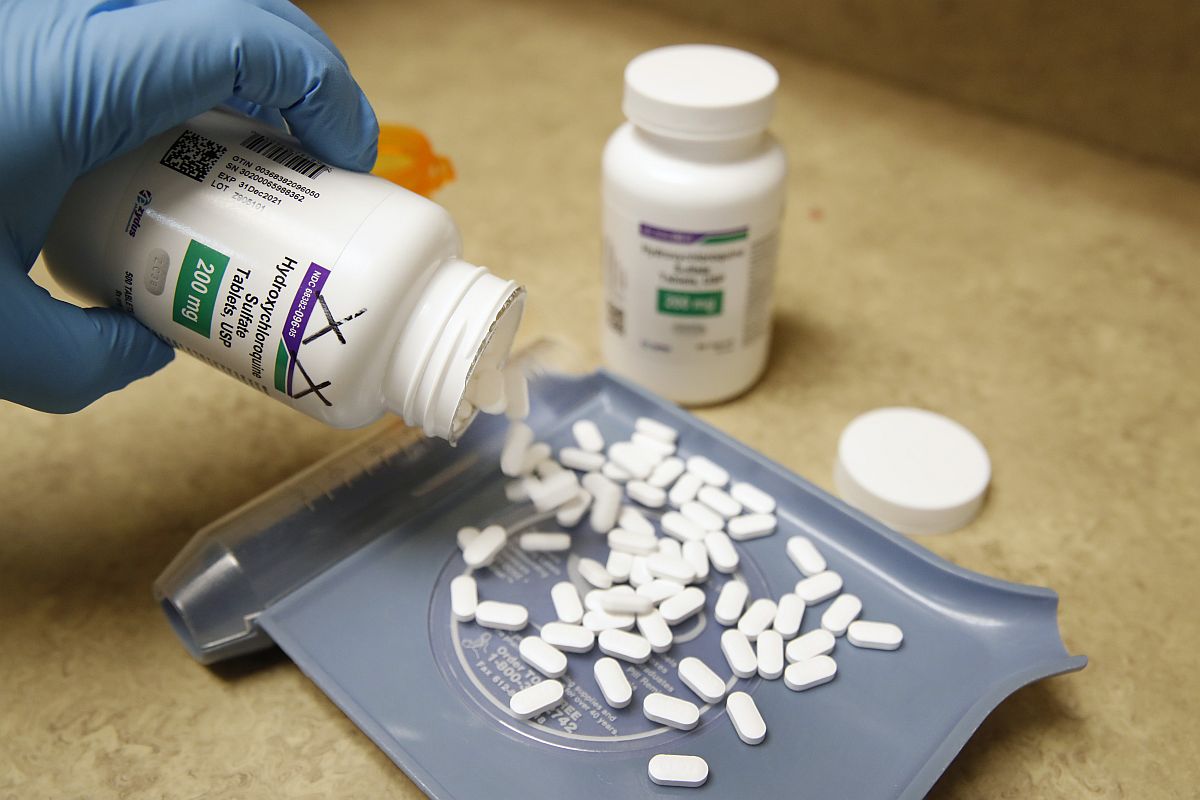My Health My Right the theme for world health day this year
World Health Day is an annual global health awareness campaign celebrated on 7 April, organised by the World Health Organization (WHO).
The Lancet is among the many signatories to a statement on data sharing for COVID-19 studies.

A pharmacy tech pours out pills of Hydroxychloroquine. (File Photo: AFP)
Medial journal The Lancet issued a correction on a large observational study that linked use of anti-malarial drug Hydroxychloroquine with increased death risk in COVID-19 patients, after more than 100 scientists and medical professionals raised questions about integrity of data analysed in the study.
The study published on May 22 led the World Health Organization (WHO) to “temporarily” suspend the trial of Hydroxychloroquine on COVID-19 patients.
In the correction issued on Friday, Lancet said that one hospital self-designated as belonging to the Australasia continental designation should have been assigned to the Asian continental designation.
Advertisement
In their open letter to the authors of the study and the editor of Lancet, the scientists pointed out that “data from Australia are not compatible with government reports.”
The study was informed by data from healthcare data analytics company Surgisphere, the founder of which, Sapan Desai, is one of the four authors of the paper.
“There was no mention of the countries or hospitals that contributed to the data source and no acknowledgments to their contributions,” the scientist said in their open letter.
“A request to the authors for information on the contributing centres was denied. Data from Australia are not compatible with government reports. Surgisphere have since stated this was an error of classification of one hospital from Asia. This indicates the need for further error checking throughout the database,” they added.
The study analysed data from nearly 15,000 patients with COVID-19 and 81,000 controls.
The open letter lists 10 major concerns about statistical analysis and data integrity.
“The authors have not adhered to standard practices in the machine learning and statistics community. They have not released their code or data,” the letter stated.
The Lancet is among the many signatories to a statement on data sharing for COVID-19 studies.
Surgisphere in a statement said that its data use agreements do not allow it to make some data public.
While issuing the correction, Lancet also said that “there have been no changes to the findings of the paper.”
The authors of the study had reported that among patients receiving the drug, when used alone or with a macrolide, they estimated a higher mortality rate.
Following this, WHO Director-General Tedros Adhanom Ghebreyesus announced that a clinical trial of Hydroxychloroquine (HCQ) on COVID-19 patients has come to “a temporary pause”, while the safety data of the the anti-malaria drug was being reviewed.
“The Executive Group of the Solidarity Trial, representing 10 of the participating countries, met on Saturday (May 23) and has agreed to review a comprehensive analysis and critical appraisal of all evidence available globally,” Tedros said in a virtual press conference on Monday.
The review will consider data collected so far in the Solidarity Trial and in particular robust randomized available data, to adequately evaluate the potential benefits and harms from this drug, he said.
“The Executive Group has implemented a temporary pause of the HCQ arm within the Solidarity Trial while the safety data is reviewed by the Data Safety Monitoring Board. The other arms of the trial are continuing,” Tedros added.
WHO initiated the Solidarity Trial, a plan to evaluate the safety and efficacy of four drugs and drug combinations against COVID-19 more than two months ago, which includes HCQ.
Tedros added that the safety concern over the drug related only to the use of HCQ and chloroquine in COVID-19, and “these drugs are accepted as generally safe for use in patients with autoimmune diseases or malaria”.
Meanwhile, the Indian Council of Medical Research (ICMR) has written to the WHO, expressing its disagreement with the global health body’s advisory against the use of anti-malaria Hydroxychloroquine in treating Coronavirus patients.
The ICMR, in the letter, cited the difference in dosage administered to patients and said that international dosages are four times higher than Indian trials.
(With inputs from IANS)
Advertisement